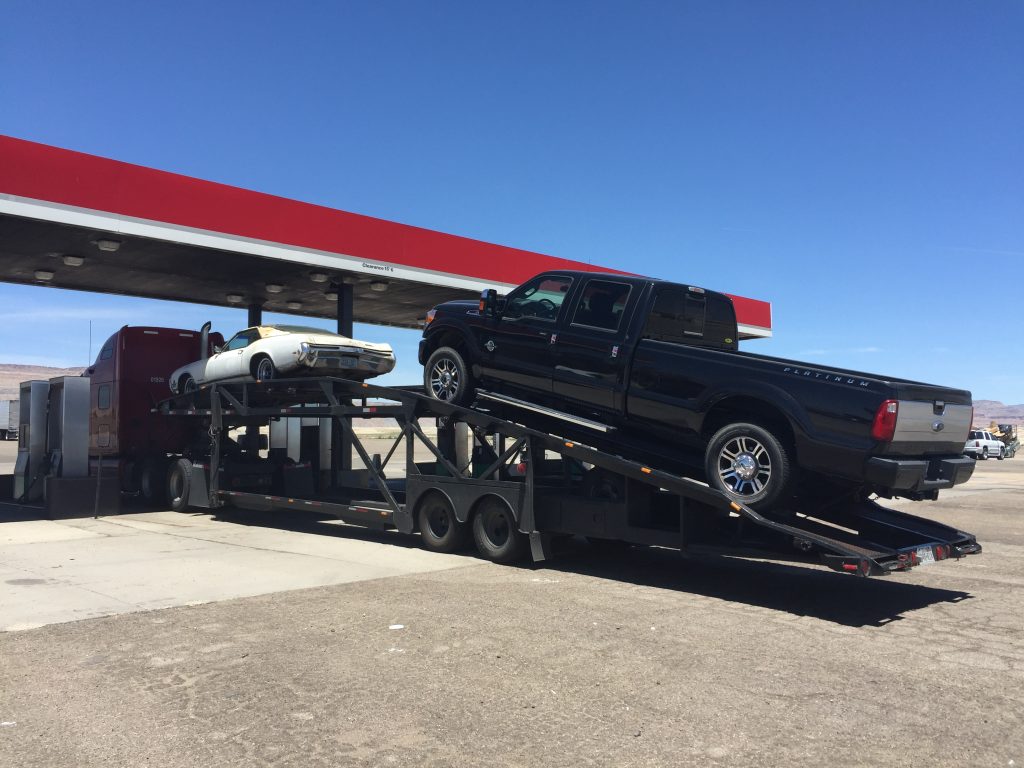A 1000 miles is the distance from New York to Missouri, or from San Francisco to Denver. Can you drive that?
How much does it cost to ship a car 1000 miles?
The auto transport cost depends on several factors: distance and vehicle make and model set the base price.
The type of auto transport service further affects the cost. However, the final deciding factor is current supply and demand on any given route.
Whether you are shipping a vehicle 200 or 2000 miles, the cost to ship a car variables are the same. Sometimes a short distance of 300 or 400 miles may cost as much as a 1000 mile trip. This could happen when you request an enclosed trailer or a guaranteed date delivery. The factors are various and it all depends on the unique situation.
Corsia auto transport coordinators track supply and demand daily and quote only current market prices to ship a car now.
Supply and demand
When booking a plane ticket, have you ever wondered why traveling on a specific date is more expensive compared to other dates? Well, this is due to supply and demand. Something similar happens when booking an auto transport service. It is not impossible to choose exact pick-up and delivery dates in advance, but it costs a premium.
In the auto transport industry, supply and demand determine the final cost to ship a car. Nevertheless, certain times of the year and certain routes are well known for price hikes. However, the supply and demand situation changes daily on every route, and, thus, a price can change in a matter of hours. So, the best price can never be locked ahead of time, but rather a week or two in advance, at most.
The best way to save money is by being flexible with your shipping dates. If you are willing to wait a bit longer for your car to get picked up, you can get a break on the price.
Summer is the peak season when the demand for auto transport services often reaches its highest. Snowbirds’ routes, or shipping outbound from the Southern states, are usually affected during summer. But if you are shipping to the Southern states, you will pay more in winter and spring.
Is your car operable?
This is an important question. Whether your car is running or not, will seriously affect the price to ship a vehicle. You have to be prepared to pay a higher rate if you are shipping a non-operable vehicle. To load and unload an inoperable car the shipper needs special equipment such as a forklift or a winch. Plus, we certainly work with vetted carriers who know how to work this equipment.
What type of auto transport carrier do you prefer?
This is another important question, and aspect of the auto transport process to think about. The type of carrier you prefer depends on the level of protection required. Open auto transport is the standard shipping method used for all vehicle types. It is completely safe, less expensive, and faster to schedule because 90 percent of the carriers in the US are open.

If you are looking for more protection for your vehicle, ship it with enclosed transport. Enclosed trailers have soft or hard side cover that protects vehicles from weather and road elements. This type of carrier is usually used for high-end automobiles that demand white-glove service. This, however, t could cost you about $300 more than an open carrier and longer wait.
Corsia Logistics makes it easy
Corsia has been serving customers for nearly a decade now. We answer all questions and quote current market prices. This is complete transparency and it is the only way to make shipping a car easy. Nearly 70 percent of our customers are first-time shippers and they need answers to major questions.

From reading the website to booking and delivery Corsia team answers questions and manages the whole process. Check out our customer reviews now.
It is a good practice to request several car shipping quotes and compare the prices. This is how you can understand better the car shipping price spectrum for 1000 miles. We urge you not to settle for the cheapest offer you receive. Do not go for the most expensive either. Call and talk to the companies. You have to hear who you will deal with throughout the shipping process.



